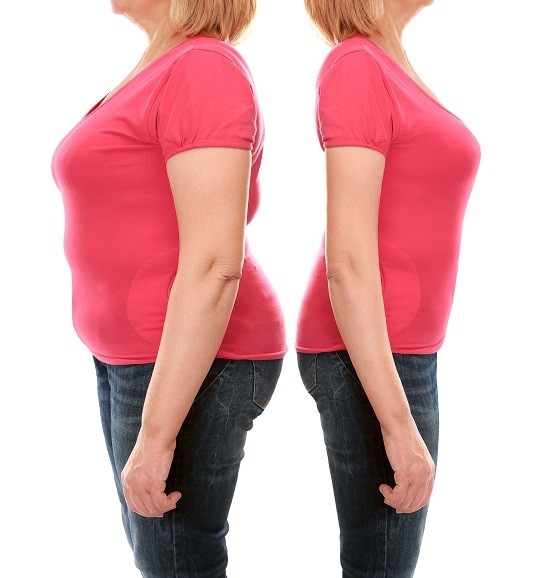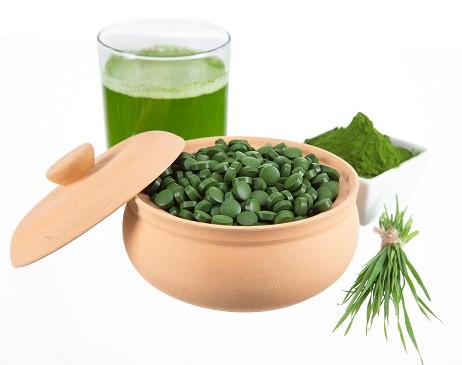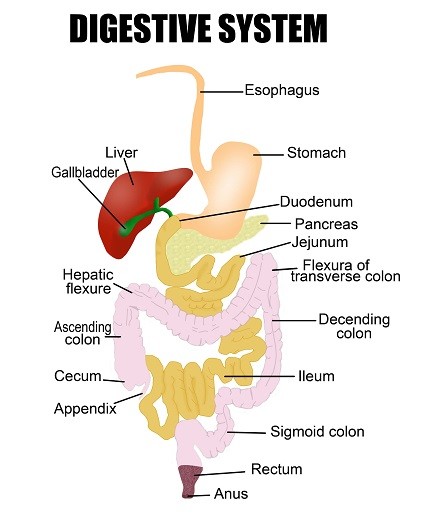A diet focussed on nutrition that has anti-ageing benefits is important for maintaining a healthy body weight, regular detoxification and decreasing cellular damage caused by inflammatory foods. Inflammatory foods are known to aggravate the intestinal mucosa, resulting in “leaky gut” and the spread of damaging inflammation throughout the body.
Such inflammatory damage manifests as age-related diseases (e.g., joint pain, chronic fatigue, heart disease, etc.), the loss of skin elasticity, weight gain, hormone imbalances, and many other visible signs of ageing.

Therefore, reducing the consumption of inflammatory foods using a precise, focused and custumised nutrition diet plan serve to heal leaky gut, decrease inflammation throughout the body and prevent many of the age-related health effects.
- How and why does an anti-ageing diet work?
Chronic inflammation is the cause of many chronic diseases and results in the cellular damage responsible for age-related health problems.
An anti-ageing diet works by reducing the level of inflammation in the body so as to prevent cellular damage, thereby improving overall health and reducing signs of ageing.
- When should you start an anti-ageing diet?
You should begin eating an anti-ageing diet immediately.
The earlier one starts eating an anti-ageing diet, the earlier he or she will experience the associated health benefits.
Although the age-related effects of eating an inflammatory diet will be damaging, such damage can slowly begin to heal once an anti-ageing diet begins.
- What foods accelerating ageing and what are the accelerating ageing mechanisms caused by these foods?
Inflammatory foods are responsible for ageing and associated health concerns.
One of the mechanisms by which ageing is accelerated by foods include leaky gut, which leads to chronic inflammation throughout the body causing cellular damage, hormone disruption, weight gain, and other health conditions.
- How you can begin your optimum anti-ageing day?
An optimum anti-ageing day begins with activities that reduce stress (e.g., meditation, and/or exercise).
Anti-ageing foods that should be consumed include anti-inflammatory foods such as those that are low in sugar and high in anti-oxidants (e.g., berries, vegetables, chia seeds, vitamins C and E, and clean healthy fats [e.g., flaxseeds or avocado]).
- Why is it important to avoid poor quality cosmetics, pollution and heavy metals?
Poor quality cosmetics, pollution and heavy metals should be avoided because they increase the chemical load, and cause cellular damage and oxidative stress related to premature ageing.
Such chemicals (e.g., lead, formaldehyde, parabens, and other toxins) accumulate in the body, damaging many of our cellular components, disrupt hormones, and increasing inflammation throughout the body 1,2.
- What is the impact of harmful chemicals?
Harmful chemicals impact the balance of hormones in the body.
Such chemicals are termed endocrine disrupting chemicals, and can be found in plastics, cosmetics and other industrial substances1,2.
These chemicals interfere with human hormone pathways (e.g., oestrogen and testosterone) by accumulating within fat cells, and cause harmful effects at very, very low doses1,2.
- How does pollution influence the level of toxins in the body?
Pollution influences the level of toxins in the body since many organic pollutants cause metabolic dysfunction and have been linked to the development of obesity and diabetes.
Such pollutants are under continuous exposure in the environment and even at very low doses, bioaccumulate within the fat cells of animals and humans2.
Thus, both environmental exposure and the consumption of animal products that have been exposed to such pollutants can have detrimental effects on ageing.
- How can you use an anti-ageing diet for weight loss?
An anti-ageing diet can be used to achieve weight loss by reducing the exposure to harmful chemicals and foods that interfere with metabolic and hormonal pathways which regulate appetite and weight loss2,5.

Weight loss as a result of an anti-ageing diet has been shown to prolong the lifespan and decrease chronic disease in obese adults2,5.
- How can you use an anti-ageing diet to improve chronic inflammatory diseases?
Many individuals who suffer from chronic inflammatory diseases (e.g., diabetes, cardiovascular disease and allergies) find that their symptoms are alleviated or resolved when eating an anti-ageing diet.
8 Precise Anti-Ageing Mechanisms to Use and Stop the Clock
Since ageing is linked to increased inflammation, decreased cellular repair, and the onslaught of toxins or other harmful chemicals, it is important to combat such issues to stop the ageing process, and begin to reverse some of the damage.
In general, ageing is associated with chronic diseases (e.g., type 2 diabetes, and inflammatory bowel disease), neurological symptoms (e.g., dementia or Parkinson’s disease), increased fatigue, loss of skin elasticity, joint aches and weight gain.
Such symptoms are typically due to increased inflammation caused by inflammatory foods, chemicals or stress.
Thus, to reverse the clock and the ageing process, we must target the cause of these ageing processes.
Inflammation can be reduced by eliminating any inflammatory foods from the diet, promoting digestive healing with selected foods, high quality custumised nutrition diet plans, by caloric restriction and avoiding the use of products with hormone-disrupting chemicals.
Cellular repair can be induced by consuming foods with anti-oxidant properties and reducing cortisol levels associated with stress with acts of self-care.
The following are 8 specific anti-ageing mechanisms that can be applied in order to repair the body and prevent age-related disorders.
1. Eliminate inflammatory foods from your diet
Inflammatory foods (e.g., processed foods, sugar, gluten, sodium and food additives) irritate the intestinal lining (mucosa) and disrupt the tight junctions between the cells of the intestine3,4.
This phenomenon of gaps between the cells of the intestine is termed “leaky gut”3,4.
Leaky gut leads to the transportation of food and bacterial particles through the intestine and into the general circulation, causing inflammation-related diseases and other signs of premature aging3,4.
By eliminating inflammatory foods from your diet, you can begin to heal signs of leaky gut and decrease inflammation throughout the body, thus preventing age-related health effects.
2. Add anti-inflammatory foods to your diet
The consumption of anti-inflammatory foods (e.g., berries, leafy vegetables and spices) help reduce the level of inflammation beginning in the intestine, and provide essential nutrients that reduce the level of oxidative stress throughout the body 3,4,9,10,11,14,15.
Oxidative stress refers to the level of cellular damage in the tissues and organ systems.
By decreasing oxidative stress, tissues can be repaired and the overall level of inflammation throughout the body is reduced.
3. Reduce exposure to cosmetics and other products containing harmful chemicals
Cosmetics and other household products contain harmful chemicals that disrupt cellular pathways throughout the body.
Such toxins (e.g., BPAs, parabens and other endocrine disrupting chemicals) primarily interfere with the endocrine system and normal hormone production1,2.
Hormonal imbalances can lead to premature reproductive ageing, weight gain, cancer, diabetes and neurological conditions1,2.
4. Increase the amount of sleep
Adequate sleep is required for many essential processes in the body, including immunity, cellular repair and cognitive functionality17.
Studies have found that in individuals who do not get adequate sleep are more susceptible to infection, are at increased risk for age-related neurological conditions (e.g., dementia, Alzheimer’s, Parkinson’s disease and depression) and cancer17.
5. Increased physical activity
Exercise has been linked to increased longevity, disease-resistance and a more youthful appearance.
In particular, regular exercise has been associated with decreased risk of dementia, cardiovascular disease, cancer, increased weight control and a prolonged life-span.
Studies indicate that such effects are due to the activation of genes involved in decreasing the stress response, decreasing carbohydrate metabolism and enhancing cellular repair mechanisms8.
6. Take anti-inflammatory supplements
Since chronic inflammation is at the root of several chronic age-related diseases and facilitates the ageing process, decreasing inflammation throughout the body with the use of supplements can help stop and begin to reverse signs of ageing.
Some of the most potent anti-inflammatory supplements include omega-3 fatty acids, green tea, resveratrol, curcumin and let’s say vitamin D9,10,11,14,15,16.
Studies have found that such anti-inflammatory supplements can aid in the treatment of inflammatory bowel disease, neurological conditions (e.g., Parkinson’s Disease and dementia) and even facilitate cellular repair following chemotherapy9,10,11,14,15,16.

Therefore, high grade clinically significant customised supplements used correctly could be effective in reducing inflammation throughout your body.
7. Fasting and caloric restriction
There is growing evidence that reducing caloric intake and periodical fasting (safely and only for some individuals) decreases the effects of ageing and inflammation12.
This is achieved by facilitating the repair of the intestinal mucosa and healing leaky gut-associated inflammation.
In addition, caloric restriction increases autophagy, the process by which cells regenerate, anti-oxidant functionality and regulates hormone production in the body 12.
8. Avoid stress by practicing self-care
Prolonged stress causes increased levels of cortisol in the body, decreases cellular repair, increases susceptibility to disease, and enhances inflammation throughout the body13.
Therefore, methods of decreasing the stress response are beneficial for reducing signs of ageing and preventing chronic diseases13.
Such methods include meditation, moderate exercise, a massage or other methods of self-care which have been found to significantly decrease the cortisol response, blood pressure and the inflammatory response throughout the body13.
Do you want to feel, look much younger, and achieve your health and fitness goals?
Contact Jazz Alessi by clicking on this link now, here !
Plant Based Anti-Ageing Nutrition for Energy, Recovery, Weight Loss and Better Skin Texture
- Whole plant-based foods vs. processed foods: The processing of foods increases the glycaemic index and the glycaemic load of a food as well as decreases the digestion process. Such foods are stored as fat more readily.
This is because foods that are high in sugar cause insulin to be upregulated, which stimulates the storage of glucose in the form of adipocytes (fat cells) and eventually leads to obesity7.
In obese individuals, the increased level of adipose tissue is associated with increased immune activation5.
Such increased inflammation is linked to insulin insensitivity and the development of type 2 diabetes and other metabolic diseases2,5,7.
Moreover, processed foods often contain other additives (e.g., sodium, citrate and artificial sweeteners) that interact with the immune system by increasing insulin insensitivity, increasing fat storage, liver inflammation and gastrointestinal diseases (e.g., inflammatory bowel disease)7.
- The consumption of fibre: The fibre content in food is important as it decreases the glycaemic index of foods and aids in maintenance of the microbiome6.
Individuals who consume a high level of fibre from a primarily plant-based diet have a greater diversity of gut bacteria, which prevent the development of leaky gut3,4,6.
This is achieved by suppressing the growth of pathogenic bacterial species (e.g., Salmonella species and Escherichia coli) in the intestine by decreasing the pH in the gut.
In addition, a plant-based diet that is high in fibre is low in fermentable carbohydrates leads to the production of butyrate, which is protective against the development of colon cancer.
Therefore, individuals who consume a plant-based diet tend to exhibit higher levels of butyrate, which is associated with a lower incidence of intestinal polyps3,4,6.
- Microflora changes based on diet: The microflora found in the gut is closely linked to the type of foods that that individual consumes. Thus, changes in diet and subsequently the gut microflora, affect one’s energy levels and mental health.
In particular, when individuals consume a diet high in processed foods and refined sugars, there is decreased diversity of the gut microflora compared to those who consume a plant-based diet high in fiber3,4,6.
Moreover, the bacterial species that comprise the microflora of individuals who consume a highly-processed “Western diet” are associated with the disruption of the intestinal mucosa leading to leaky gut, systemic inflammation, metabolic disruption and chronic diseases3,4,6.
- Leaky gut: The consumption of inflammatory food leads to systemic inflammation throughout the body. This is the result of irritation of the intestinal mucosa, which leads to the disruption of the tight junctions that maintain the cellular barrier3,4.
When individuals consume inflammatory foods, these tight junctions loosen, allowing large particles (e.g., food products and bacterial products from the digestive tract) from the intestine to pass into the general circulation3,4.

When this occurs, inflammation is present throughout the body and can manifest as a variety of symptoms.
Individuals with leaky gut often experience chronic fatigue or general lack of energy, aches and pains, brain fog or difficulty concentrating, and bloating or other gastrointestinal issues3,4.
Chronic inflammation linked to leaky gut has also been linked to cardiovascular symptoms, malnutrition due to lack of absorption, decreased immune function, and skin conditions (rashes, acne and eczema)3,4.
Do you want to feel, look much younger, and achieve your health and fitness goals?
Contact Jazz Alessi by clicking on this link now, here !
Switch On and Off Your Immunity with Customised Nutrition
Immune enhancing:
- Anti-oxidants: Anti-oxidants (e.g., the consumption of berries) scavenge free radicals and combat aging and inflammation. Consuming berries and other sources of polyphenols (e.g., resveratrol and olive oil) prevent a spike in blood glucose levels, thus, protecting against “sugar highs” and “crashes” after consumption.
Anti-oxidants also prevent harmful substances from damaging cells in the body, promoting cellular repair processes.
Other plant-based anti-oxidants include olive oil9, which has been shown to decrease the cellular inflammation associated with rheumatoid arthritis and inflammatory bowel disease by enhancing immune regulatory pathways that inhibit pathological inflammation11.
Another anti-oxidant, curcumin, has been shown to enhance immune function through increasing cancer surveillance and killing by immune cells15.
Another one is cold pressed organic flaxseed oil.
Such enhanced immune functionality also serves to protect against infection.
Other micronutrients, such as vitamin C, have also been shown to promote immune functionality against viral infections and also have anti-cancer effects16.
- Probiotics: Probiotics aid in digestion and avoid inflammation caused by harmful bacteria and yeast species (e.g., Candida). Certain foods and drugs (e.g., antibiotics) impact the microbial species present within the intestine, often facilitating the growth of harmful bacteria in the gut11.
Such bacteria can enhance symptoms of leaky gut, and are detrimental to normal intestinal function and the absorption of nutrients from food. Thus, research indicates that the consumption of probiotics, or beneficial bacterial species, can restore both gut and immune function11.
Since leaky gut causes global inflammation in the body, the immune response often becomes exhausted and unable to respond to infections or provide surveillance against cancer development3,4.
By restoring normal gut function and eliminating chronic immune activation, the immune system is able to respond appropriately to harmful health threats.
- Food allergies and sensitivities: Food allergies and insensitivities are immune activating and symptoms manifest as increased inflammation and bloating3,4,11.
Such sensitivities and allergies are highly individual and genetic-based, and thus, experimentation is required to determine which foods should be avoided in order to reduce inflammation.
Some of these common foods include dairy, some nuts, eggs, beef, gluten, as well as highly processed foods and those containing high levels of sugars or sugar-like products3,4,11.
When such foods are eliminated from the diet, inflammation is decreased and other symptoms, including body aches, skin conditions, and fatigue are often alleviated3,4.
Do you want to start to feel, look much younger, and achieve your health and fitness goals?
Contact Jazz Alessi by clicking on this link now, here !
Immune suppressing:
- Anti-inflammatory foods: Anti-inflammatory foods (e.g., spices like curcumin15) serve to decrease immune activation in the body responsible for tissue injury and impaired immune function. Such foods include curcumin, which has been shown to downregulate genes involved in persistent immune activation. Other foods include omega 3 fatty acid supplements and polyphenols found in plants 14,15,11,10.
- Chemicals in foods which interfere with immune function: Highly processed foods often contain harmful chemicals that interfere with hormonal pathways and suppress immune function1,2. By eating a diet consisting of customised and whole, primarily plant-based unprocessed foods, such chemicals could be avoided.

CUSTOMISED ANTI-AGEING NUTRITION DIET PLAN BY JAZZ ALESSI
Adjusting to an anti-ageing diet may be intimidating as it may be unclear as to which foods contain more antioxidants, are anti-inflammatory or will have anti-ageing properties.
One method of making this process easier is to follow a focused and customised nutrition diet plan.
As a leading nutritionist with extensive experience in anti-ageing diets and helping clients achieve their goals, Jazz Alessi provides customised nutrition plans based on individual body type, age, gender, activity levels, oxidative stress, challenges, goals and precise and effective nutritional requirements.

Jazz Alessi’s customised diet plan begins with a comprehensive lifestyle assessment, followed by a detailed dietary analysis that assesses each client’s current diet and particular foods that can be adjusted to reduce inflammation and to a large extent if required to help heal signs of leaky gut.
Jazz Alessi will then provide an effective and focused customised nutrition diet plan with appropriate anti-inflammatory macronutrients (carbohydrates, fats and proteins) and micronutrients (e.g., iron, iodine, zinc, etc.).
This plan will include an effective custumised shopping list and recipes and suggested foods for breakfast, lunch, dinner and snacks you will eat in between.
Any health issues specific to each client will be considered, and Jazz Alessi will also liaise with your medical doctor and provide continued nutrition coaching support throughout the entire process.
Do you want to start to feel, look much younger, and achieve your health and fitness goals?
Contact Jazz Alessi by clicking on this link now, here !
References:
1. Ribeiro, Edna, Carina Ladeira, and Susana Viegas. “EDCs Mixtures: A Stealthy Hazard for Human Health?” Ed. David Bellinger. Toxics 5.1 (2017): 5. PMC. Web. 13 Dec. 2017. https://www.ncbi.nlm.nih.gov/pmc/articles/PMC5606671/
2. Yang C, Kong APS, Cai Z, Chung ACK. “Organic Pollutants as Risk Factors for Obesity and Diabetes”. Curr Diab Rep. 2017 Nov 2;17(12):132. doi: 10.1007/s11892-017-0966-0.Persistent https://www.ncbi.nlm.nih.gov/pubmed/29098478
3. Kelly, John R. et al. “Breaking down the Barriers: The Gut Microbiome, Intestinal Permeability and Stress-Related Psychiatric Disorders.” Frontiers in Cellular Neuroscience 9 (2015): 392. PMC. Web. 13 Dec. 2017. https://www.ncbi.nlm.nih.gov/pmc/articles/PMC4604320/
4. Mu, Qinghui et al. “Leaky Gut As a Danger Signal for Autoimmune Diseases.” Frontiers in Immunology 8 (2017): 598. PMC. Web. 13 Dec. 2017. https://www.ncbi.nlm.nih.gov/pmc/articles/PMC5440529/
5. Ma, Chenhan et al. “Effects of Weight Loss Interventions for Adults Who Are Obese on Mortality, Cardiovascular Disease, and Cancer: Systematic Review and Meta-Analysis.” The BMJ 359 (2017): j4849. PMC. Web. 13 Dec. 2017. https://www.ncbi.nlm.nih.gov/pubmed/29138133
6. Simpson, H. L., and B. J. Campbell. “Review Article: Dietary Fibre–microbiota Interactions.” Alimentary Pharmacology & Therapeutics 42.2 (2015): 158–179. PMC. Web. 13 Dec. 2017. https://www.ncbi.nlm.nih.gov/pmc/articles/PMC4949558/
7. Paula Neto, Heitor A. et al. “Effects of Food Additives on Immune Cells As Contributors to Body Weight Gain and Immune-Mediated Metabolic Dysregulation.” Frontiers in Immunology 8 (2017): 1478. PMC. Web. 13 Dec. 2017. https://www.ncbi.nlm.nih.gov/pmc/articles/PMC5672138/
8. Sujkowski, Alyson et al. “Endurance Exercise and Selective Breeding for Longevity Extend Drosophila Healthspan by Overlapping Mechanisms.” Aging (Albany NY) 7.8 (2015): 535–550. Print. https://www.ncbi.nlm.nih.gov/pubmed/26298685
9. Calder PC. “Omega-3 fatty acids and inflammatory processes: from molecules to man.” Biochem Soc Trans. 2017 Oct 15;45(5):1105-1115. doi: 10.1042/BST20160474. Epub 2017 Sep 12. https://www.ncbi.nlm.nih.gov/pubmed/28900017
10. Morgan LA, Grundmann O. “Preclinical and Potential Applications of Common Western Herbal Supplements as Complementary Treatment in Parkinson’s Disease.” J Diet Suppl. 2017 Jul 4;14(4):453-466. doi: 10.1080/19390211.2016.1263710. Epub 2017 Jan 17 https://www.ncbi.nlm.nih.gov/pubmed/28095073
11. Rossi RE1, Whyand T, Murray CD, Hamilton MI, Conte D, Caplin ME. “The role of dietary supplements in inflammatory bowel disease: a systematic review.” Eur J Gastroenterol Hepatol. 2016 Dec;28(12):1357-1364. https://www.ncbi.nlm.nih.gov/pubmed/27769076
12. Golbidi S, Daiber A, Korac B, Li H, Essop MF, Laher I. “Health Benefits of Fasting and Caloric Restriction.” Curr Diab Rep. 2017 Oct 23;17(12):123. doi: 10.1007/s11892-017-0951-7. https://www.ncbi.nlm.nih.gov/pubmed/29063418
13. Pascoe MC, Thompson DR, Jenkins ZM, Ski CF. “Mindfulness mediates the physiological markers of stress: Systematic review and meta-analysis.” J Psychiatr Res. 2017 Dec;95:156-178. doi: 10.1016/j.jpsychires.2017.08.004. Epub 2017 Aug 23. https://www.ncbi.nlm.nih.gov/pubmed/28863392
14. Magrone T et al. “Olive Leaf Extracts Act as Modulators of the Human Immune Response.” Endocr Metab Immune Disord Drug Targets.2017 Nov 15. doi:10.2174/1871530317666171116110537. [Epub ahead of print] https://www.ncbi.nlm.nih.gov/pubmed/29149822
15. Halder, Ramesh C. et al. “Curcuminoids and Ω-3 Fatty Acids with Anti-Oxidants Potentiate Cytotoxicity of Natural Killer Cells against Pancreatic Ductal Adenocarcinoma Cells and Inhibit Interferon Γ Production.” Frontiers in Physiology 6 (2015): 129. PMC. Web. 13 Dec. 2017. https://www.ncbi.nlm.nih.gov/pubmed/26052286
16. Carr, Anitra C., and Silvia Maggini. “Vitamin C and Immune Function.” Nutrients. 9.11 (2017): 1211. PMC. Web. 13 Dec. 2017. https://www.ncbi.nlm.nih.gov/pubmed/29099763
17. Scullin, Michael K., and Donald L. Bliwise. “Sleep, Cognition, and Normal Aging: Integrating a Half-Century of Multidisciplinary Research.” Perspectives on psychological science : a journal of the Association for Psychological Science 10.1 (2015): 97–137. PMC. Web. 13 Dec. 2017. https://www.ncbi.nlm.nih.gov/pubmed/25620997
Disclaimer: This website and all its content is to be used for information purposes only. This website or any of its content or links to third parties does not diagnose, advise, treat or cure any ailments, illness or disease.
You agree to hold harmless the owner of this site for any action taken on your own without consulting your medical doctor first by using the information on the website for diagnostic, treatment, or any other related purposes. This is not medical advice. If you are suffering from any illness, disease or ailments please contact your doctor first and immediately.



